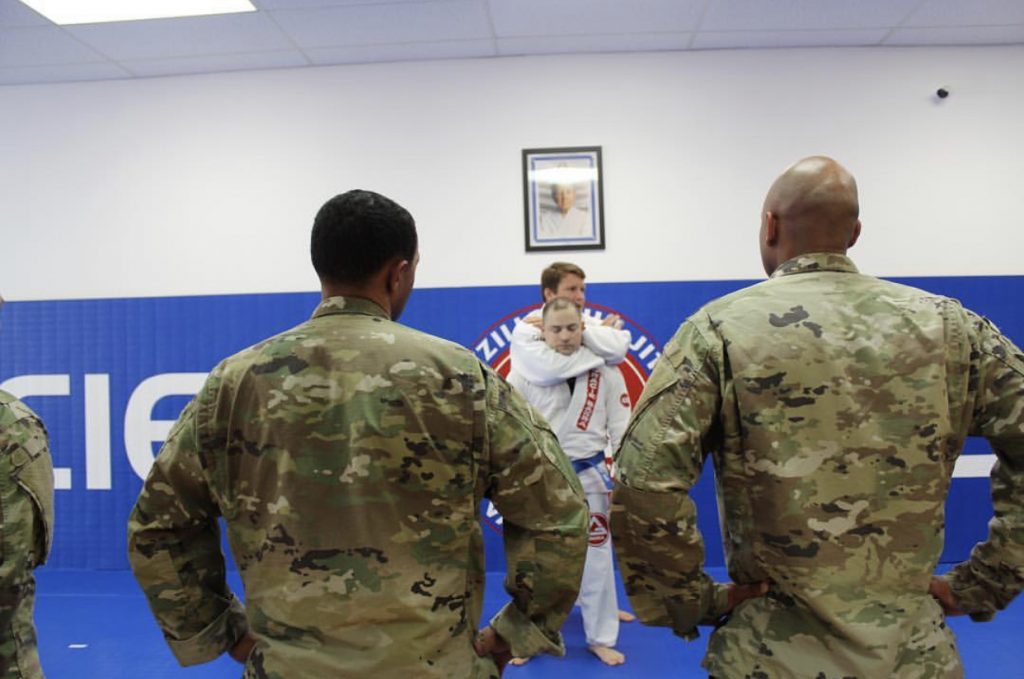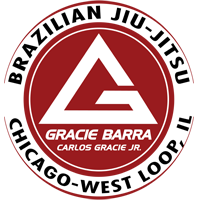Armed Forces Learning Jiu-Jitsu
Jiu-Jitsu techniques are based on timing and effective use of leverage.

Master Carlos Gracie Jr. once said: “At first repetition is what counts, I teach my students to repeat the moves to exhaustion, until it enters their subconscious and they therefore can apply them automatically, without thinking. Later on, once the combat situations have become complex I try and stimulate them to be creative.”
The lessons below are part of a course that Professor Andre Almeida from Gracie Barra in Simi Valley, California has taught on a course to the U.S. Air Force soldiers as part of this squad’s war training:
Ethics Of War
The jiu-jitsu practitioner should be trained to be the best fighter, but it should also be an instrument to improve life and balance the mind and spirit, strengthening and reinforcing good principles.
The Training Of The Mind
The training required for the mastering of jiu-jitsu offers and enables a better understanding of different situations, which allows a more appropriate reaction in a extreme situation, even under great pressure.
Understanding The Lever
The key is understanding lever in such way that soldiers can use locks and chokes effectively, but without falling into the trap of the abuse of power and, at the same time, the risk of being dominated in battle.
Seeing Challenges As a Bridge For Improvement
Learning how to embrace difficulties and challenges as a path for improvement is a fundamental mindset for the soldier on the war front. Jiu-Jitsu will teach you to first neutralize the aggression, understand the challenge, and then be offensive.
The Mastery Of Jiu-Jitsu For Personal Growth
An intellectual activity will sharpen the mind but neglect the body; conditioning alone will be beneficial for the body but will neglect the mind. Jiu-jitsu is an activity that will train and improve all human aspects.

